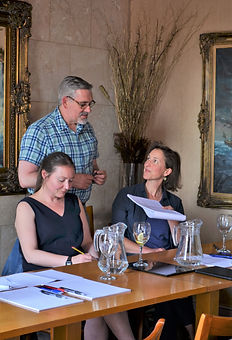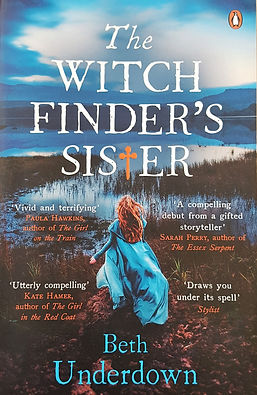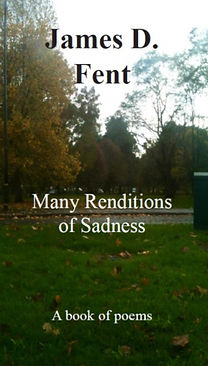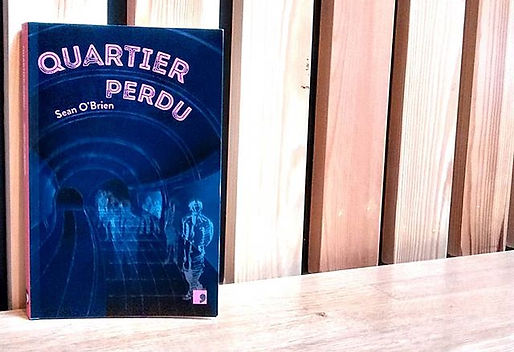
England
Poems From A School
Edited By Kate Clanchy (Picador)
Reveiw by Seamus Kelly
What do I, as a poet, look for when reading or listening to poetry? When I read poetry, I want to be shown new perspectives, to gain new insights, to be made to pause for thought and I hope to find pleasure in the reading. After reading just six random poems from this collection I knew that it would deliver on all counts. I wasn’t sure though that it would make me smile.
As I read those first poems every one of them moved me. I came across extreme sadness, heartache for lost people and places and memories of war and violence, but I also came across extreme optimism and that really did make me smile.
How could one not dab a little tear when reading “Eyen” written by the poet Michael Egbe to his aunt who looked after him after his mother was gone? Talking about a photo of his mother he writes:
“…and you would take it away from me and hold me close to say, don’t worry,
she’s out there for you”
How can you not feel anger and futility at a world where the poet, Shukria Rezaei, feels compelled to write about her Hazara people:
“in Afghanistan where they come from / in Pakistan where they are murdered /
in Iran where they offend / because of their almond shaped eyes.”
When the poets speak of home they do so with real affection and plenty of illuminating details, often reflecting as much on the food as the geography, so that the reader can feel it, taste and smell it.
The poet Maah-Noor Ali writes:
“No smell of fruit and marble floors, no / swirling noises of fans, no / animals, nothing / that felt alive”
Aisha Borja concentrated on her father cooking both at home in Columbia and now in England. In this short extract from My Dad Cooks the World and his Past in a Steam Cooker she wrote:
“My dad is the resurrector / of beans, a puller-back / of dead skins / a conductor / of vegetable stew.”
When they describe the loss of it the reader can feel the loss, it feels personal, as it should.
The following lines are from Rukiya Khatun and Shukiria Rexai:
“Look up the sky is blue. Here the same / Clouds appear, but nothing is the same”
Rukiya Khatun
“Today I missed the jagged roads. / The horizons of mountains looming / with
calming familiarity. / The way the sky flowered. / The way I used to live.”
At times this book is a truly heart-rending read with stories of terrible experiences, but it is
also heart-warming in its optimism and its belief in the values of family and society.
In writing this review have deliberately chosen, up to this point, to use the term “poet” and not refer to “young” poets. To look at the writing in context it is necessary to be aware that it is written by young people attending a state school and that the young people were all from what the editor calls “striving migrant families and several are refugees”. The brief pen-portraits of the young poets included at the back of the book are a powerful reminder of where this work comes from and are themselves well worth reading.
I hadn’t expected to find so many genuinely good poems in a book from young people in asingle school.
There is some exceptional poetry in this book and I am pleased to say that I have not found any weak poems in this collection.
The editor, Kate Clanchy, has done a great job of enabling these young people to get their stories told and of putting them together in a book that feels like it belongs to the writers not the editor.
Make no mistake this is not a book of poems to pick up if you want a quick and happy fix of rhyme and pentameters. No! this book is far more important than that.
Being privileged to work with young people myself I never cease to be amazed by their ability to talk about their lives and life in general once we offer them the opportunity and tools in a supportive and non-judgemental way. This book proves to me beyond doubt that young people, regardless of their backgrounds, must be given the chance to both experience and create a wide range of art whether in writing, poetry, spoken, 2 dimensional, 3 dimensional, static or dynamic media. This book also demonstrates, with abundant clarity, that immigration adds immense cultural and human value to our country.
Seamus Kelly
About Seamus Kelly...Seams Kelly is a performance poet and has been working professionally since 2015.
He has produced a short collection ''Thinking Too Much'' and performs and leads workshops across the North
West. Seamus is the resident poet on the ''Stories We Could Tell'' project in Rochdale working with young people
including asylum seekers, young people in care and young people with mental health issues to empower them
whilst developing skills and confidence. Read more about him on his website, One Poet's Vision, click here.
Seamus kelly in his poetry workshop for Altrincham Word Fest 2018


The Witchfinder's sister
Beth Underdown
Reveiw by Katie Frankland
It does what it says on the cover: it’s a story about the sister of a witchfinder. There’s something quite simple, matter of fact about its title, yet quite deep and intriguing at the same time. The sister, Alice is making a reluctant but necessary move from London back to her rural beginnings in Essex. Her husband had recently died, leaving her with child, and she is now reliant upon her brother, Matthew to support her. This is 1645 and to be a woman in England is to be subservient and dependent on men.
Her brother, she remembers as an usual friendless child. As an adult, he is powerful, popular and well established. Not only that, but his business affairs are of the highest calibre. He is a witchfinder; an important and high ranking job where he is feared yet revered. Before long, Alice, too, is all too involved in the trialling of suspected witches.
The suspected witches, are, like Alice, independent women by circumstance: spinsters, widows, barren, single-parents. They are old, unchaste, undesired, unwanted. In fact, they are misunderstood; for their madness is one of grief, loneliness and forced isolation. The penalty for having been found to be a witch: death. The story torments the reader from page one as it opens with Alice herself seemingly imprisoned as if she herself has joined the coven and is awaiting her fate.
As obvious today as it was in the 17th century, this story clearly shows how women, as individuals or as a collective, can be steered, intentionally or unconsciously, into thinking the worst of another woman and how that thought can turn into feelings of spite and jealously and spiral out of control to the detriment of the other, or even themselves. The contradiction of women being each other’s biggest threat but also each other’s biggest saviour is evident in this book and cleverly portrayed throughout many of the key female characters. The growing companionship and solidarity forming within Alice’s unexpected friendships lead to her eventual salvation.
As a reader, not being able to jump in and stand up for Alice in a very 21st century manner for me was quite frustrating. Words such as “you will obey me” and “it is your duty” raged me and I wanted to argue her place, her person, her existence, as an equal. Yet this was more frustrating when realising that even if I could influence Alice’s words or actions, my modern day freedoms and opinions would result in further consequence for her. My rescue mission would be impossible.
This brother-sister relationship in itself is also interesting. The lead male in the story being a brother, rather than a husband ties the two characters closer together, bonded by a shared history. Alice knows Matthew more than any other person, yet does not understand him. His ideals and morals are different to hers, despite being raised in the same household. Alice often looks back at excerpts of their youth, trying to find something, some clue to the cause of his strangeness, his evil ways. Seemingly the torment of his youth, the unforgotten feelings of jealousy, resentment, bitterness, and fear, all sit brewing within his own coldrun.
The sections of original witchcraft text scattered throughout the book make it scarier, although it wasn’t until the end that I realised these were actual accounts of a real life witchfinder. Knowing this and understanding some of the old fashioned practices, such as witch watchings could have come earlier, maybe having the Glossary at the start. The concept of an imp, for example, was hard to grasp for someone like me, who knows very little about folklore, legend, and fantasy. Having said that, this lack of understanding made me feel a deeper connection to, and sympathy for the women, as they too must have been flooded with confusion at the preposterous accusations being hounded at them.
The witchfinder’s sister’s story intrigued me from the start; the drama unfolding piece by piece. A
mesmerising read of a bygone era that seems all too fictional for its factual undertones. Even its
somewhat comically cruel ending suggests the days of the witch are not yet over, leaving the reader
wanting more.
Read more about Katie in our 'People' section or have a look at her blog, Glab a Line.
Grab A Line https://grabaline.wordpress.com/

Many Renditions of Sadness
James D. Fent


Review by Patrick Green
Intimate, raw and straight talking poetry, covering a broad range of personal experiences with poetic finesse and honesty.
A mysterious Manchester based poet not to be missed, James D. Fent has more than poetry to offer in relation to creativity. His last collection of poetry ‘Many Renditions of Sadness’ is an ambitious collection of forty poems that claims to cover topics of ‘Love, heartbreak, lust, sex, madness, loneliness, fear, life and death’ essentially the personal in its entirety. It’s a bold move to make out that all these topics can be ticked off within the space of forty poems. Whether you feel that he achieves this or not is actually a distraction from the fact this collection is a read that has you gripped from the first line “Walking gently through solemn streets”. The poem titled ‘Walking home’ sets the scene and almost describes the very nature of the poet himself. We feel that we are about to walk with him through the rest of the book. Within this first poem life and death are summarised immediately with the line ‘The houses full of life look empty and dead’ it provides a sense of disconnection, the observations in the poem are simplistic, but the imagery is powerful and stays with you.
It sets the scene for the rest of the collection. Some poems have a touch of the surreal such as ‘Beneath a glass sky’. It sits on the page as a thought without connection to place or circumstance. This is really refreshing from a northern poet. Some poets seem consumed by place. This can create a circle of exclusion around them that makes them non-relatable to people outside of their geographical locations. “The sky shatters, the rain falls” the use of weather is perhaps a little obvious in the poem but the way we imagine the sky to be a huge expanse of glass breaking is still a vivid image “My body, showered with crystal splinters”. We hear the sound of the shattering and we want to run for cover. It needs to be said that Fent often brings it back to the self with the use of “My” and “I” in a lot of his poems. Yet we want to hear his point of view, its bolshie and comes from a real and quick thinking mind. It is an unfussy voice in an art form that is often considered pompous to those outside of regular appreciation.
Other highlights are ‘Tea and Toast’. Again at first read the poem appears simplistic on the page. It is a universally understandable poem about breakfast. The poem takes you into the inner sanctuary of the poet’s world, the place where he lives and crafts his poems. Representing the true self it is a straight lines observational poem with listening as the key sense being used. The poem works upon the theme of being alone as observer, removed from society and yet right in the middle of it. It has an element of Buddhist like mediation. It is big and small in its focus. There seems to be no concrete structure to what comes next in the sounds that are heard, but this spontaneous prose approach is something that James has mastered.
“Listening to the world pass me by” is a line that sums the poem up, it is its big statement. It has a crude moment as some of the collection contains language that is of that nature; used wisely though, not littered all over the pages purely for shock value. “Listening to the whores brawling over one condom” the poet says it how it is. The small element starts straight away “Tea and Toast / On a Sunday Morning”. This poem is an insightful look into the life and surroundings of its creator. Central to the book it prompts you to want more from the poet and to discover what else he has to offer in the way of personal and gritty description.
The title poem ‘Many Renditions of Sadness’ sits towards the exit of the book. Its setting is a familiar one by this point of reading the collection. Many of Fent’s poems originate in daily living in his local area. Here is an exert from the poem:
I stood cold outside your house
not brave enough to knock.
The hailstones picked apart my
skin, in small revelations.
They caught on the curl of my
fringe, and dropped like a
skydiver, free falling with no
parachute.
Notice how each line ends before a conclusion creating the need to head to the next to discover what it is the poet wants to reveal to you. It’s conversational. We get a sense of how James feels even though he does not add himself to the description. The hailstones are not his making but the way the ‘skydiver’ free falls with no parachute: could it signpost us to the deeper way in which the writer thinks and feels about his existence.
The book concludes with a poem called ‘Manchester’ which firmly places him in a place. It may seem disappointing to some that the poet reveals this. It is a poem that holds bitterness within its words but it’s also strangely an ode to a kind of reluctant love of the place in which the poet is from. We are left deciding whether he does like Manchester or he doesn’t. But good art always leaves room for interpretation. Fent has a brief comment on an x-lover within the poem, a theme that he comes back to a few times throughout the collection. However, it doesn’t overpower the book, just enhances its honesty. This collection has that honesty all the way through.
To purchase and read the whole collection head over to:
https://www.amazon.co.uk/Many-Renditions-of-Sadness/dp/1514869497
Paperback version of Many Renditions of Sadness by James D. Fent
About the reviewer...Patrick Green-Multidisciplinary artists, musician and freelance writer from Manchester.
Patrick Green is a multidisciplinary creative worker. He has created a broadrange of work in the areas of animation, design, illustration, music, painting (with a current focus on automatism and abstract expressionism), video work and visual art. He is passionate about the positive impact that creativity can have on mental health and has facilitated a variety of creative wellbeing sessions in community and hospital settings. Patrick is currently pursuing more engagement with other writers and artists by writing reviews of poetry collections, books (fiction), performances, and independent films.
Click here to find out more about Patrick Green
Music : www.patrickgreenmusic.wordpress.com
Visual art : www.patrickgreenvisualart.wordpress.com
Writing blog : www.analogboywriting.wordpress.com
Design: www.patrickgreenartanddesign.wordpress.com
Mental Health and Wellbeing : www.patchworkwellbeing.wordpress.com
Quartier Perdu
Sean O'Brien (Comma Press)

Beautiful chilling tales from a poet
Reveiw by Yoko Isami/Altrincham Word Fest
Sean O'Brien will come to The Whitworth gallery on 6th October to perform his poetry alongside Deryn Rees-Jones as part of Manchester Literature Festival. Music will be played by Basiliisk Duo from the Royal Northern College of Music
Before I was involved with Altrincham Word Fest, I was really an avarage reader, just reading books that caught my eye. I had some favorite authors, but that was it. I thought that was what everyone was doing. Then I noticed my colleague was on her small mission to read books by authors from the North or published by small, independent publishers. Are the books written by Northern authors any different except for the locations? Are the books published by smaller publishers more edgy than ones from publishing giants? What about self publishing? I've only just started this small mission alongside my colleague, and here it is, the book called 'Quartier Perdu' by Sean O'Brien published by Comma Press has arrived.
To my shame, I've never heard of this British author, Sean O'Brien, before, partly because he is better known as a poet, though he wrote two novels and a short story before 'Quartier Perdu'. But often it's good not to have assumptions, the surprise you'd get is bigger and nicer if you don't have any information about what you'll embark on, and what a nice surprize this was!
The very unfamiliar sounding title 'Quartier Perdu' (It's the title of one of the stories. it means obsolete, too) already gives us an idea that this is a collection of stories about something mysterious. The book is divided into three sections and each section has six short stories, most of them are about ten pages. Some of them grip you right from the start, some are slow starters with not much happening until the very end but all the time we are kept entertained with his sharp eye for the human psyche . I haven't read his poems yet, but I'm sure his strength as a poetry writer adds to his fiction writing. The stories are mostly set in a past when there seem to be more mysterious, bizarre things occurring. Psychological rather than graphic, these stories will leave you in the chill and the wonder longer.
